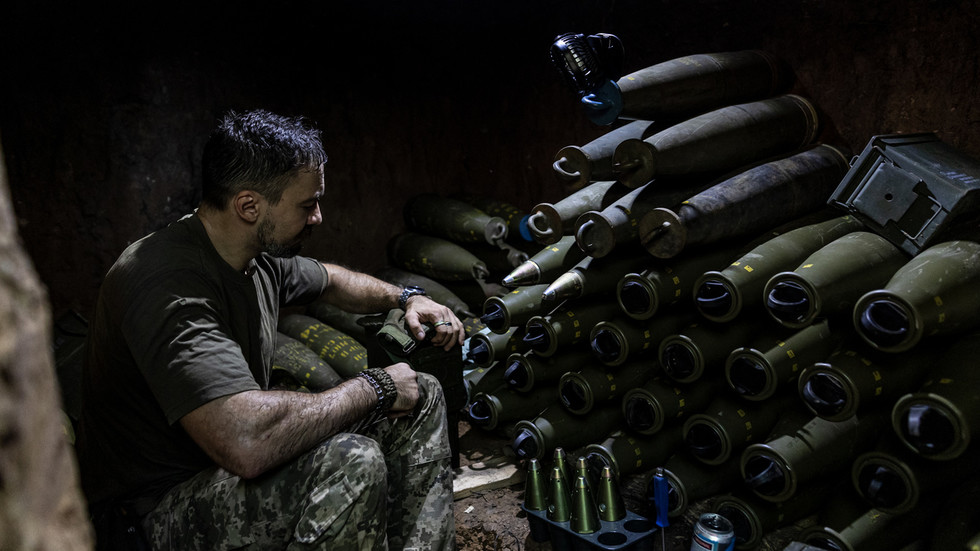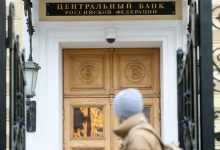
Rheinmetall has increased the cost of 155-mm caliber shells used by Kiev’s armed forces from €2,000 to €3,600
FILE PHOTO. A Ukrainian soldier prepares 155mm artillery shells in his fighting position as Ukrainian Army conduct operation to target trenches of Russian forces through the Donetsk Oblast amid Russia and Ukraine war in Donetsk Oblast, Ukraine on August 6, 2023. © Herrera Carcedo/Getty Images
The price of artillery shells produced by German arms manufacturer Rheinmetall have soared by more than half since the start of the Ukraine conflict, an investigation by the Welt am Sonntag newspaper published on Tuesday revealed.
Confidential documents showed that Rheinmetall, which brands itself as “a strong partner on Ukraine’s side,” raked in huge profits by selling artillery shells to Kiev, paid for by the German government, as ammunition prices have surged since early last year, the outlet said.
According to the document, in July the German Defense Ministry signed a deal with Rheinmetall on the supply of 155-mm caliber shells that can be fired from the self-propelled howitzer 2000 and hit targets dozens of kilometers away. The contract will reportedly serve both German and Ukrainian needs.
Kiev’s troops allegedly used 155-mm caliber shells in a series of artillery strikes on civilian infrastructure in the city of Donetsk in May.
Under the deal, Rheinmetall will supply Kiev with up to 333,333 rounds of the large-caliber ammunition with each shell costing at least €3,600 ($3,813), the outlet noted, adding that shell prices are expected to rise further.
According to the German Finance Ministry, in the “current market situation, Rheinmetall was not prepared to unilaterally set binding order quantities over the entire contract period, specific delivery times or prices.”
Before February 2022, artillery shells were sold at a standard market price of €2,000 per unit.
“You can no longer produce bullets in Europe for €2,000 euros,” a military economist who asked not to be identified told Welt am Sonntag.
Industry experts point to rising raw material and production costs in the EU, that have been driven up by supply chain disruptions and soaring energy prices triggered by the Ukraine conflict.
For more stories on economy & finance visit RT’s business section




